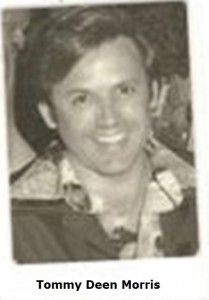Guest Editorial
I’ve written on this topic twice before and didn’t think I would need to write about again. But as new collectors come into this industry, old lessons are not always passed on. So here’s the lesson.
It’s a little before 3:00am, very quiet. A tow truck is idling up backwards into a driveway intending to repossess a Ford truck. Suddenly the lights in the house come on and a man runs outside. The repo driver, afraid for his life, drives away and leaves the Ford behind. 15 minutes later, another repo man backs up into the same driveway. This time the debtor is waiting on his porch with a 30-30 telescopic rifle and he shoots the repossessor through the neck and both lungs, killing him.
This sad scene took place on Feb 24, 1994 in Houston Texas. Tommy Morris was the second repo man in this story and he left behind his wife  and 4 children. The debtor who did the killing, Jerry Casey, Jr, was never arrested for his actions but ended up committing suicide 8 months later. The sad part of this story is that this tragedy could have been avoided if the dealer who assigned out the repossession order did not engage in the dangerous and highly censured practice of “double assigning” accounts. Double assigning an account is: assigning an account out for repossession to two or more repossession agents in the same geographical area at the same time.
and 4 children. The debtor who did the killing, Jerry Casey, Jr, was never arrested for his actions but ended up committing suicide 8 months later. The sad part of this story is that this tragedy could have been avoided if the dealer who assigned out the repossession order did not engage in the dangerous and highly censured practice of “double assigning” accounts. Double assigning an account is: assigning an account out for repossession to two or more repossession agents in the same geographical area at the same time.
Some 3 years after the shooting a Jury ruled that Steeplechase Motors was mostly liable for Morris’ death because of their policy of double assigning and advised a $2.3 million judgment against Steeplechase, of which the judge ultimately awarded the family $750,000.
I was in the field repossessing cars when this incident happened. I well remember the furor it created in the repossession industry and how the not-completely uncommon practice of double assigning accounts stopped dead in the lending community because of it. But memories are short, and today I am again seeing this dangerous activity coming back to life.
Here’s an example of an incident that happened just last month. We had been assigned an account for repossession and we found the car was being kept in a carport at a duplex with another car blocking it in each night. After checking this account for over a week we finally found the car there one night not blocked in and repossessed it. The debtor redeemed the car the next day. The following night another repossession company repossessed this same car for this same lender. The lender had double assigned the account and neglected to close the account with the other company after we had repossessed it. I had learned about this because I am good friends with the other company owner and he told me the lender was not wanting to pay his repossession fee because we had already repossessed the car earlier.
In this case, it was the debtor and lender who suffered and no one was actually hurt. But if this practice continues it will only be a matter of time before somebody is. If you don’t think your repossession agency is working your accounts properly, find another agency. There are plenty of good ones out there. Keep in mind that you get what you pay for. If your agent isn’t coming up with the vehicle and you want fresh eyes on the account, by all means assign it to another agent but only after you close it with the current agent. And be sure to give the new agent all the information your first agent found out.
Repossessing cars is a dangerous profession. It takes a lot of skill, a lot of drive and a lot of daring to do it right. We count on our clients to understand this and help us keep our agents as safe as possible by telling us everything about an account when they assign it (such as if the debtor has threatened violence, if they have a known criminal record, if someone else has worked the account previously and what happened) and not to double assign the account. By working together with our clients we can successfully resolve accounts and prevent tragedies like the Tommy Morris incident from occurring.













I really find it hard to believe that these companies that are double assigning accounts are paying double closing fees. Which most likely means that the companies that they are using likely do not charge if they do not recover the unit. You pay for what you get!! If you charge a reasonable fee for reasonable work you would avoid these kind of companies. Charge for your services!!
Excellent article and reminder Russ. Some lenders will listen to warnings. As an example I had a call from a trade association member in 2013 regarding a lender that was double assigning. I sent the recovery manager a story I had written about double assigning and Tommy Deen Morris. I received a very nice card from the recovery manager thanking me for bringing this dangerous practice to their attention and they had stopped doubling assigning. I still keep that card to remind me that there are professionals in the lending industry who “get it.”
A couple of thoughts.
When NARS announced their first golf tournament I suggested that they call it the Tommy Deen Morris memorial tournament and use it to raise funds for the Recovery Agents Benefit Fund (RABF).
Another way to keep the concern of “Double Assigning” front and present is to print up a Tommy Deen Morris memorial t-shirt. On the backside point out the worst known offender of double assigning in our industry–Santander. Industry leaders and Trade group board members don’t have to wear these shirts (out of fear of offending Santander). Give them to your employees and educate them about Tommy Deen Morris and tell them to wear them to the state or regional “Tow Shows” and mingle around the Santander Finance booth.
PS I have a number of these t-shirts for sale, all proceeds go to the RABF. The shirts are Hawkeye yellow with “Boycott Santander” in dripping Blood Red. You can contact me at mike @repoeagle.com
Price is $25.
I want to thank Russ for bringing up this subject, and I agree 100%. This is a very dangerous career that we have chosen for ourselves and it is very easy for us to become complacent. If anyone knows of clients whom are playing this dangerous game then I think we should make our Associations aware. Our Associations can help educate these clients of all the dangers involved. Obviously all of us in this industry should do our part but I think the Associations can help.
Russ that is a very good point. If however, they, both the lender and recovery agencies, were using a good management system, this wouldn’t occur. There are some systems, including ours, that has the technology built in that warns if a repossession has occurred on a VIN, within the last 30 days, and to verify before the unit is attempted for repossession.